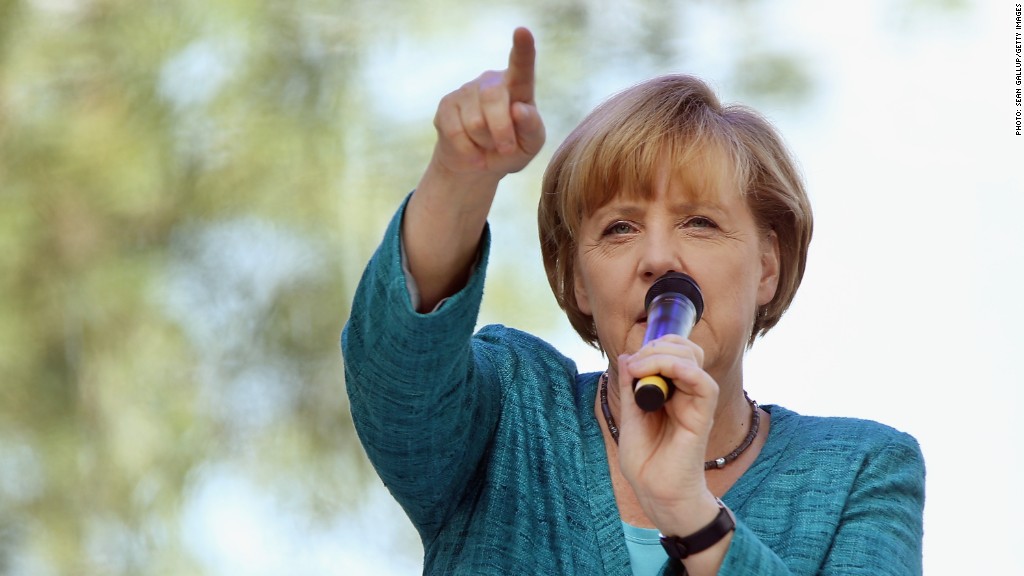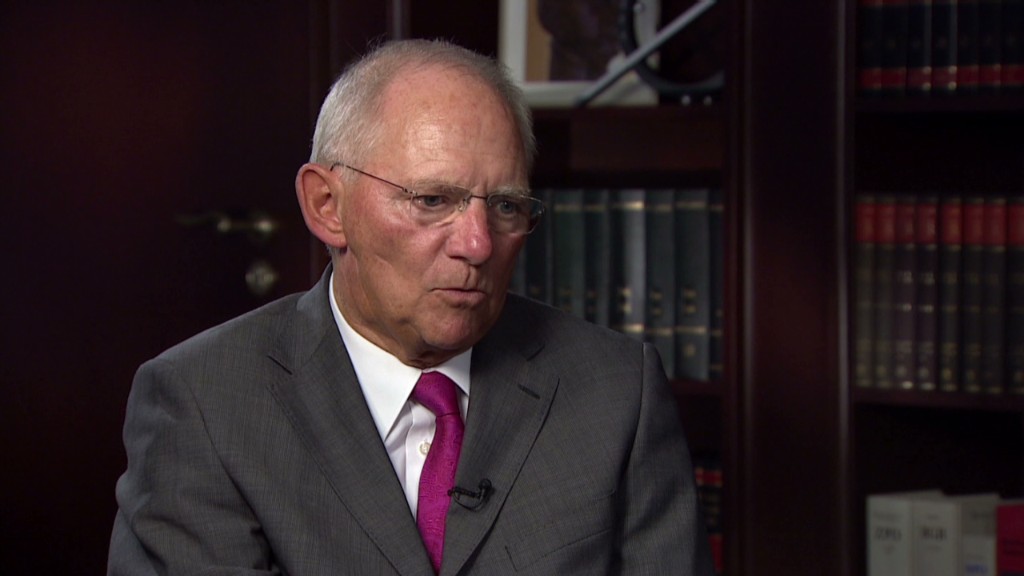
Greece should never have been allowed to join the euro, German Chancellor Angela Merkel said, as she tries to lay the blame for the eurozone's debt crisis at the door of her political opponents.
Campaigning for re-election next month, Germany's center-right leader said her Social Democrat predecessor, Gerhard Schroeder, had been wrong to support Greece's membership and agree to relax strict budget rules designed to underpin the currency.
"This crisis has been formed over many years through mistakes that were made when the euro was created," she said at a campaign rally Tuesday.
"For example, one should not have accepted Greece into the eurozone ... Chancellor Schroeder accepted Greece and weakened the stability pact," said Merkel. "Both were fundamentally wrong and are the reasons for our problems today."
After Greece adopted the euro in 2001, public spending and government borrowing soared, leaving the country unable to pay its way when the global financial crisis hit. Since 2009, Greece has been kept on life support by two bailouts from the European Union, European Central Bank and International Monetary Fund worth a total of €240 billion ($320 billion).
Related: Germany says Greece will need more support
But the emergency loans came with conditions, including savage austerity measures that contributed to a sharp contraction in Greece's economy during six years of recession and unemployment soaring to record levels of nearly 28%.

As Europe's biggest economy, Germany has made the largest contribution to the bailout funds but Merkel has been attacked in Greece and elsewhere for prescribing such a heavy dose of austerity.
The policy has been popular at home, however, and opinion polls suggest she should win a third term on September 22, helped by accelerating economic growth and signs of recovery in the eurozone.
Merkel's campaign outburst does not signal a change in policy toward Greece or other struggling states such as Portugal and Cyprus. Merkel and finance minister Wolfgang Schaueble are determined to keep Greece in the eurozone and are prepared to consider further financial help for the country, which may need another €10 billion to plug a funding gap.
Related: Germany sees no further eurozone bailouts
Speaking to CNN this week, Schaueble said Greece may need further help but he saw no further bailouts in the eurozone. He also ruled out a repeat of last year's debt "haircut," which forced Greek government bondholders to swallow losses of about €100 billion.
Analysts say even a change of government wouldn't alter Germany's approach to managing the debt crisis.
"70% of German voters and all mainstream parties from the center-right and center-left support Germany's tough-love approach to the euro crisis: Germany helps its partners but sets conditions for its help," wrote Holger Schmieding, chief economist at Berenberg bank, in a recent note.


